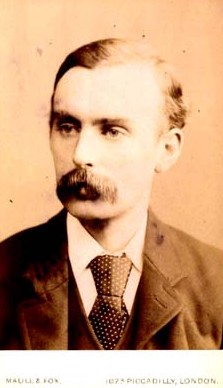Geoscientist 20.02 March 2011

The Geological Society Publishing House releases Bernard Leake’s biography of Jack Gregory this month. Leake has empathy with his subject, as both occupied the Chair of Geology at Glasgow University - albeit separated by some 70 years.
As Leake reveals, Gregory’s many achievements included recognising the initial uplift phase and then the tensional origin of the African Rift Valley; the Lake Eyre expedition and the resulting ‘Dead Heart of Australia’ book, and his recognition that the Pacific Ocean had been much smaller in the past, not larger as Wegener supposed. Unfortunately this led to his influential rejection of continental drift and helped delay its acceptance in the UK. Gregory worked on every continent except Antarctica (having resigned as Leader when Robert Scott was appointed to race to the Pole, an episode detailed with previously unpublished letters). Gregory first recognised the Olorgesailie humanoid site in Kenya, later made famous by the Leakeys, and he wrote on the worldwide structural control of fiords.
Gregory returned to the UK in 1904 to the Chair of Geology at Glasgow University, the role for which he is probably best remembered, building the largest First Year Geology Class in the UK (over 400 students!). Although his copious output of papers, monographs and books actually increased after he retired, his broad brush anti-drift global theory focused on the still curious puzzle over why 95% of the Earth’s land is antipodal to ocean.
Leake’s biography is not just an acknowledgement of Gregory’s professional life, extraordinary and productive as it was. The book also includes some beautiful illustrations of his Victorian childhood. There are revealing descriptions of life in a superior Edwardian Glasgow tenement, and Leake even describes Gregory and his wife Audrey entertaining their dinner guests.
Gregory was a truly remarkable man whose professional career began as a palaeontologist at the Natural History Museum and led via overseas expeditions, including Libya, Angola and Tibet, to international (contemporary) fame. The book takes the reader through his career with its 52 years of nightly 5–6 hours’ writing, to ‘early retirement’ at 65, and to his last expedition - a fatal traverse of the Peruvian Andes. The sudden drowning of Bernard Leake’s hero comes as both shocking and very sad. This is an excellent and compelling read. As for the film rights – well, you can get in the queue behind me!
- The Life & Work of Professor J. W. Gregory FRS (1864—1932); geologist, writer & Explorer, is published by the Geological Society as Memoir 34, priced £75.
* British Geological Survey